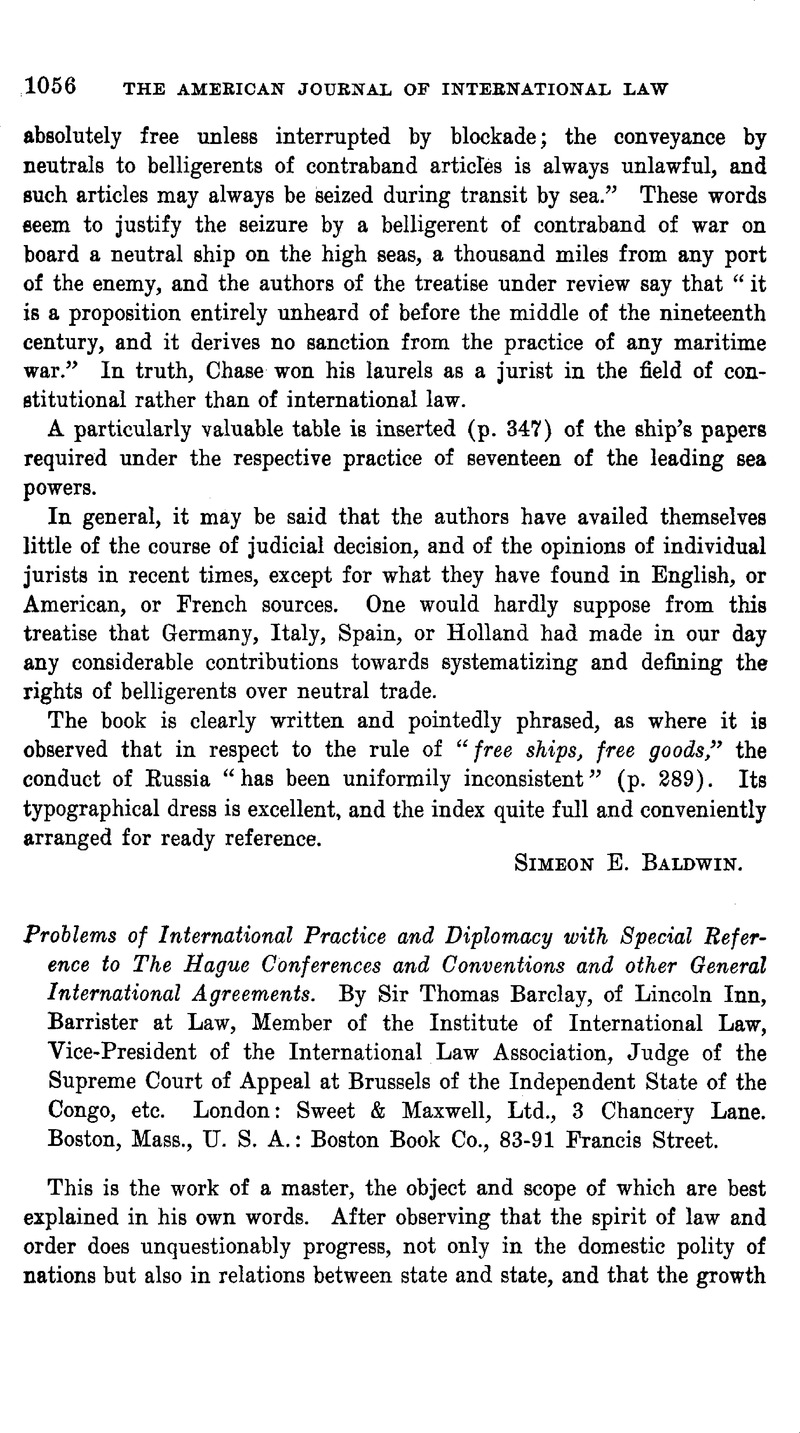No CrossRef data available.
Published online by Cambridge University Press: 04 May 2017

6 In his preface the author makes the following explanation of the unusual form in which his work is printed:
“ The form of this volume requires explanation. It has already been privately issued, partly in fragments and partly as a confidential memorandum, for the consideration of my colleagues of the Institute of International Law, different government departments at home and abroad, and others.
“ The wide margins and blanks were left for the insertion of new matter and the convenience of the specialist readers whose views on different points I had solicited. As they may also prove serviceable to the reader of a book of this kind generally, and changing the form would have entailed delay and labor out of proportion to the resulting advantage, I hope I may be pardoned for in this respect not adhering strictly to time-honored traditions of book production.”
7 In this connection it may be interesting to refer to Article XII of the treaty between the United States and Prussia, concluded Sept. 10, 1785, which provided that free vessels should make free goods. This treaty was signed, on the part of the United States, by Benjamin Franklin, Thomas Jefferson and John Adams. See also Article XIII of the same treaty and Articles XII and XIII of the treaty of July 11, 1799, between the same powers.
8 Butler, op. cit.
9 What the author submits on this subject (pp. 73–78, 180, 309, 314) is of special interest apropos of recent propositions for the independence and neutralization of the Philippines.